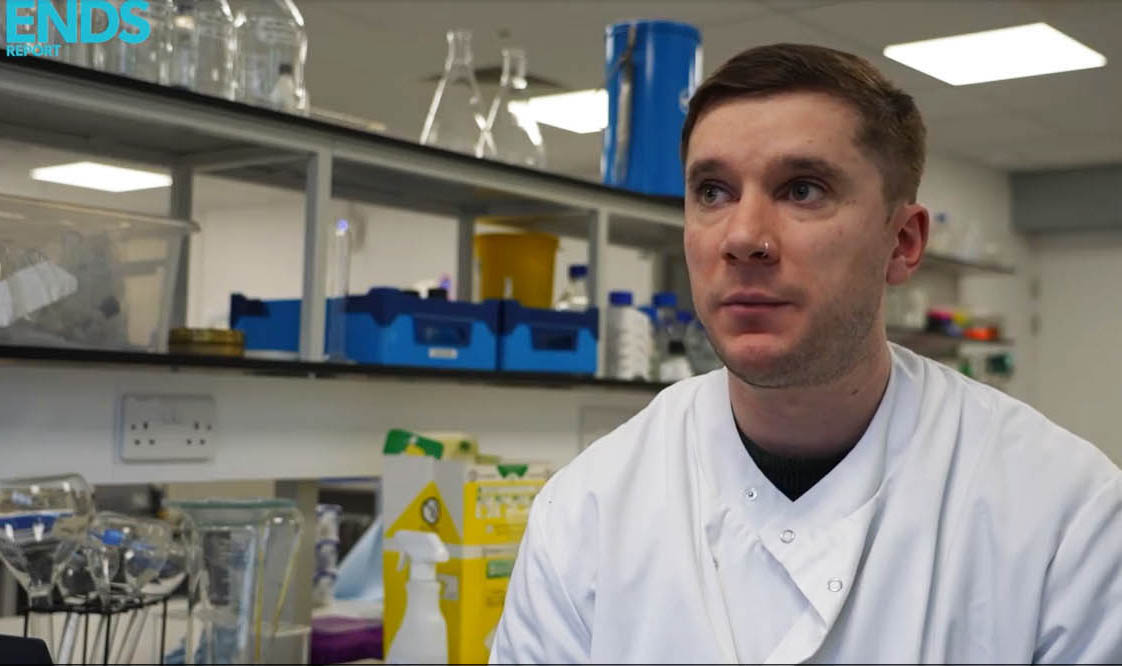• Documentary takes deep dive into British waters
• Lab tests find ‘forever chemicals’ at frightening levels
Appearing alongside the two famous faces in a film uncovering alarming amounts of toxic chemicals contaminating British waters is another you could be familiar with.
Out this week, Toxic focuses on a group of hormone-disrupting, cancer-causing chemicals called PFAS, which build up in our bodies and the environment.
Invented in the 40’s by US firm DuPont, PFAS are widely used in everyday things like cookware, clothes and cosmetics. Lasting thousands of years, they’re virtually indestructible.
Filmmakers enlist volunteers to trawl UK rivers and seas for water and oyster samples brought back to labs at Brunel University London for analysis.
Environmental scientist Dr Tom Miller turns up next to singer turned campaigner Feargal Sharkey and Green Party peer Baroness Natalie Bennett, who react to the eye-watering findings.
“PFAS are very harmful compounds, with evidence showing large number of health impacts,” said Dr Miller. “Also, these compounds do not breakdown easily in the environment.
“For chemical pollution, this is a high-risk situation where known toxicity and persistence combine, which can cause long-term issues even when the substances become regulated.”
The film, from Watershed Investigations and environment news outlet ENDS Report, shows samples being taken from sites across the UK including Truro, Grangemouth in Scotland and the River Wyre. Tom is interviewed on the beach at Southend before it’s back to campus and the lab, where he explains what he found from testing the samples for four different types of PFAS: PFOS, PFOA, PFNA and PFHxS. As well as studying water, they look at oysters because they are filter feeders that take in large volumes of water, so are a good species to reflect exposure.

The World Health Organization labels one PFAS compound, PFOA, a category one carcinogen, meaning it can cause cancer in humans. Another, PFOS, is categorised as possibly carcinogenic. There are more than 10,000 PFAS and just three are regulated.
“These findings should be a wake-up call for the government,” said ENDS Report editor Jamie Carpenter. "Following Brexit, a chasm has opened up on the regulation of toxic chemicals that pose a serious threat to humans and wildlife. While the EU moves ahead with plans for a wide-ranging restriction on PFAS, the UK government is pursuing a less ambitious proposal.”
PFAS pollution is the driving theme in 2019 Hollywood movie Dark Waters, starring Mark Ruffalo. It tells the story of US attorney Robert Bilott, whose battle to get justice for those harmed by the ‘forever chemical’ PFOA led to multi-million-dollar legal payouts and the revelation that every American has the substance in their blood.
“Chemicals are essential to our way of life,” sums up Dr Miller. “We can't just stop making these chemicals, because we need these chemicals. If we can find alternatives that are less harmful, that's a better approach. There is something called green chemistry that's becoming really important to how we design safer chemicals that aren't going to cause long-term health effects.”
‘TOXIC: Britain’s forever polluted rivers and seas’ exposes pollution hotspots, reveals polluters and finds out why this is being allowed to happen. Watch in full for free when you sign up to ENDS Report.
